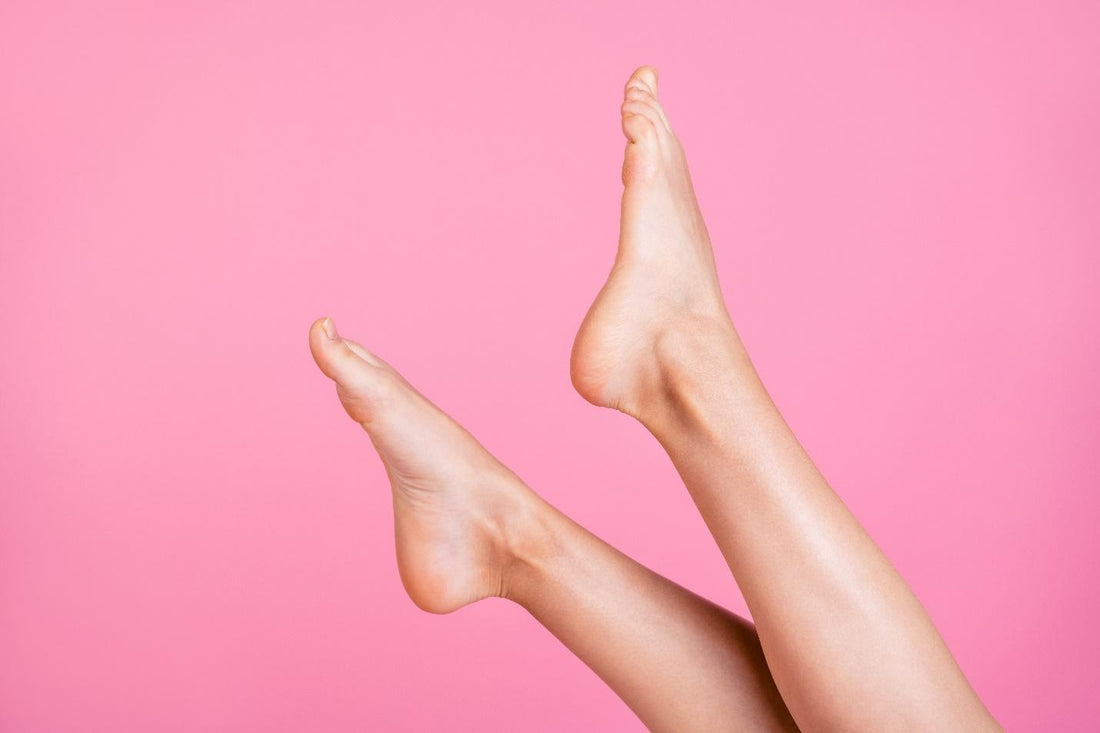What Moisturizer Do You Use in the Podiatry Clinic
HOME / FOOT HEALTH / WHAT MOISTURIZER DO YOU USE IN THE PODIATRY CLINIC
When it comes to foot health, foot creams are probably not the first thing that comes to mind. But our feet do a lot for us, and they deserve some TLC.
Heel calluses and corns can be extremely uncomfortable and persistent. While there are professional treatments, there are also several measures that can be taken at home to help alleviate these common foot problems.
In today’s post, we talk about some effective home remedies and offer some ways to promote supple and healthy feet.

Moisturizing your feet can make a big difference in common skin conditions such as calluses, dry heels, and more.
Regular Treatment and Moisturization
First and foremost, consistent treatment is key to managing calluses and corns. There are two main methods we recommend: (1) Filing with a pumice stone and (2) routinely moisturizing the feet. By filing down the hardened skin, you can reduce discomfort and encourage healing. Pairing this with a moisturizer helps keep the skin hydrated, reducing the likelihood of cracks and further damage.
Choosing the Right Moisturizer
One of the most frequently asked questions we receive at the clinic is which moisturizer to use for calluses and corns. We recommend opting for one that contains 10 to 15% urea. Urea is known for its exceptional hydrating properties and its ability to soften rough skin. You may even find some products containing up to 25% urea.
Here at the clinic, we frequently use the Dr. Scholl’s Ultra Hydrating Foot Cream, which you can find on Amazon. It contains 25% urea and also other nourishing ingredients such as essential oils and Epsom Salts.

Urea attracts water and preserves moisture, which helps to keep your feet hydrated.
When Do I Need Professional Care?
Home treatments may be effective for most individuals. However, professional care may be needed for individuals with diabetes or who are at a higher risk of infection. Diabetic individuals should have their feet checked regularly by a podiatrist who can monitor for splits or skin abnormalities. If you or someone you know has diabetes, we also highly encourage foot care practices, including daily moisturization, wearing diabetic socks, and finding well-fitting shoes. Your feet are worth it!
Your Smoothest Heels Yet
To manage calluses and corns, exfoliation and moisturization together make the best team. We understand that these foot problems can be very uncomfortable, so taking proactive measures is the best way to remain pain-free. Proper foot care means being consistent and making your foot health a priority.
If you have any other questions regarding foot health or if you would like to learn more, comment below! You can also contact our team of experts at ergonx.com.au!

